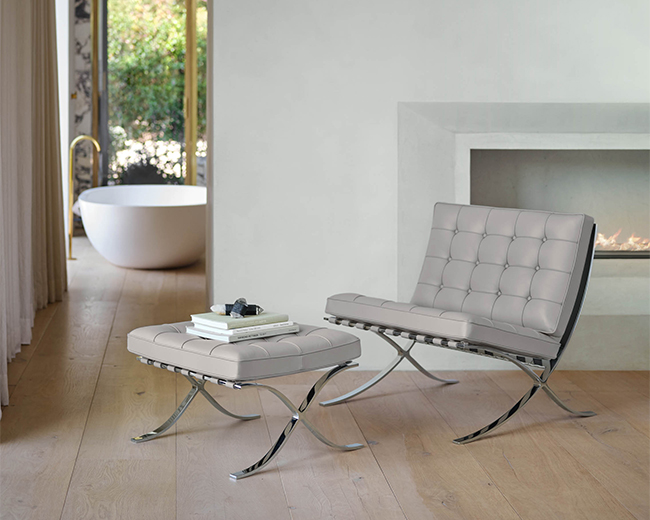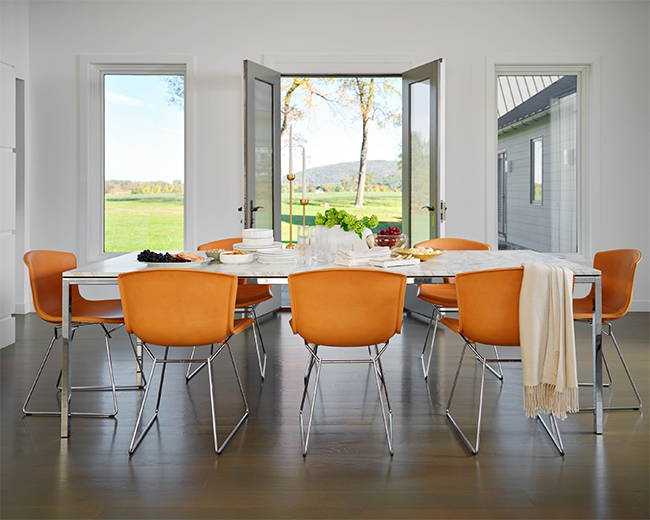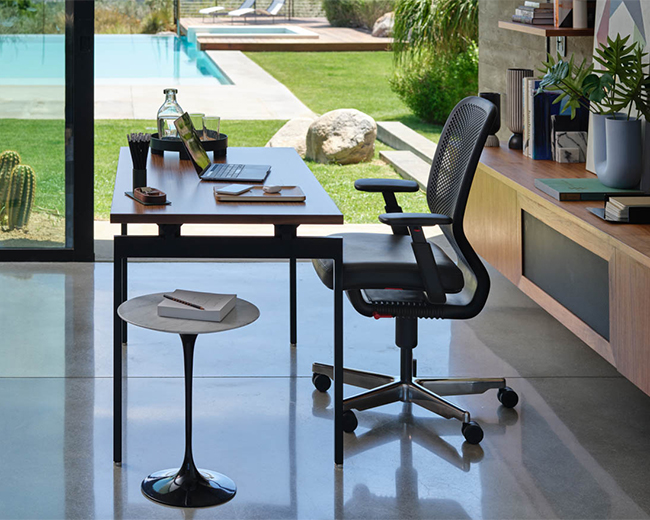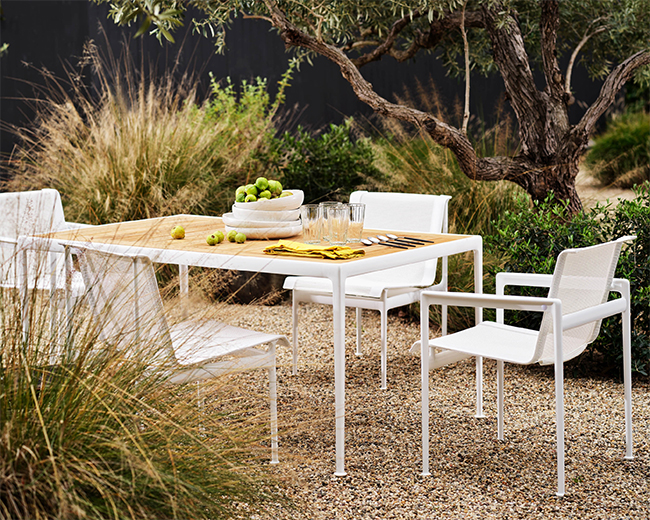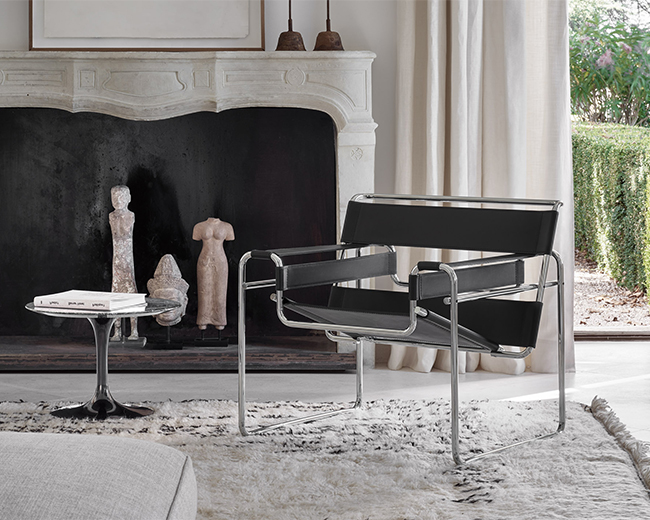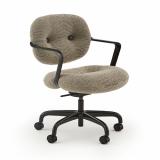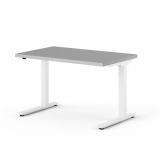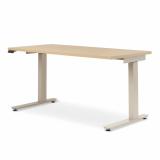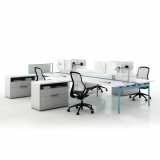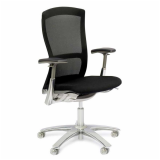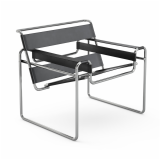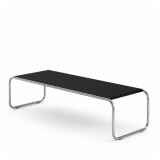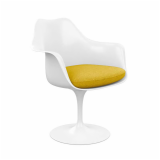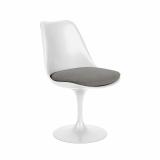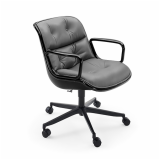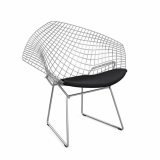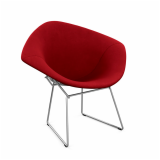From The Archive: Wolf Kaiser
Photographs from 1980s shed light on the art direction of Wolf Kaiser
Beginning in 1979, Knoll transitioned away from its previous reliance on independent graphic consultants—like Massimo Vignelli, Herbert Matter and Alvin Lustig—to in-house graphic staff. Following the acquisition of Knoll by Stephen C. Swid and Marshall S. Cogan, Wolf Kaiser was appointed the Art Director of Knoll International. With the goal of fostering a "flowering of ideas" and an "explosion of creative energy," Swid and Cogan hired Kaiser for his awareness of emerging "progressive" movements and subcultures. Informed by fashion and film of the time, Kaiser sought creative talent from outside the traditional pool, opting instead to hire those with their finger on the pulse—fashion photographer Guy Bourdin, erotic photographer Karin Székessy and architectural photographer Jacques Primois.
Presented here is a selection of Knoll advertisements, product photography and brochures from Wolf Kaiser's tenure as Art Director of Knoll International, a testament to the tenor of the time.
Karin Székessy
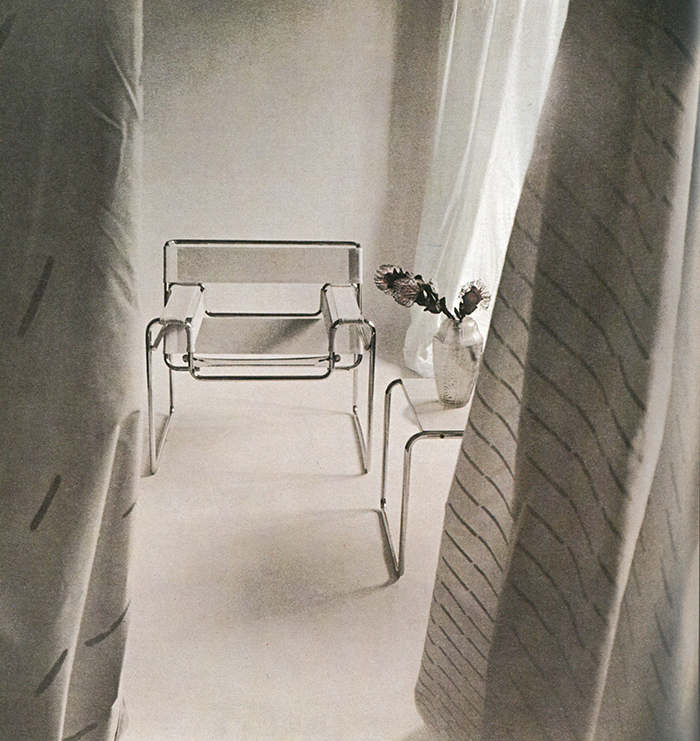
Photograph by Karin Székessy from the Knoll Archive.
Karin Székessy is best known for her atmospheric nudes. With a background in reportage and fine art photography for the likes of Graphis and Playboy, Székessy's work for Knoll makes use of the controlled staging style she developed in the studio. "What she seeks to achieve is not naturalism, but conscious artificiality," says Fritz Gruber, a scholar of her work.
These two photographs were taken as part of Knoll Art Edition, a series of six classic chairs shot on location in spectacular settings. Produced using a special process of color collotype, each photograph was numbered and signed by the artist with editions limited to 300 copies. The images were installed in Knoll showrooms and reserved for select advertising uses. For the series, Kaiser granted Székessy free reign to dramatize the character of each individual piece.
Here, the multiple leather panels that make up Breuer's deconstructed club chair (i.e. Wassily Chair) are enveloped by sheets of fabric that reference its light, structured design. Peeking through the curtain, Székessy's vantage point cultivates a sense of intruding on a scene.
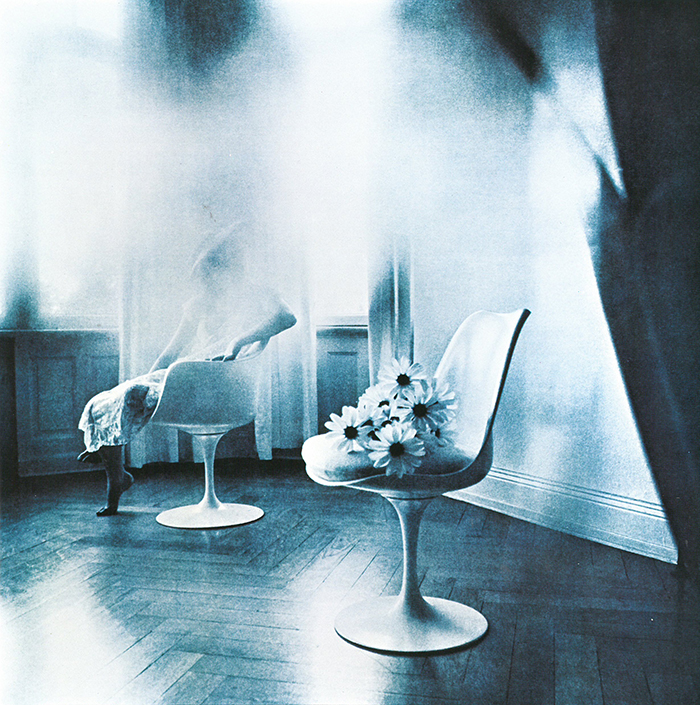
“What she seeks to achieve is not naturalism, but conscious artificiality.”
—Fritz Kemp
Photograph by Karin Székessy from the Knoll Archive.
A similar effect is achieved through different methods in the second photograph. The intentional hazing of the light-flooded image obscures the face of the woman seated in the far Tulip Armless Chair, making her a mysterious other. "By occasionally hiding the faces of her models, the general effect is a picturesque gestalt," writes Fritz Gruber.
Jacques Primois
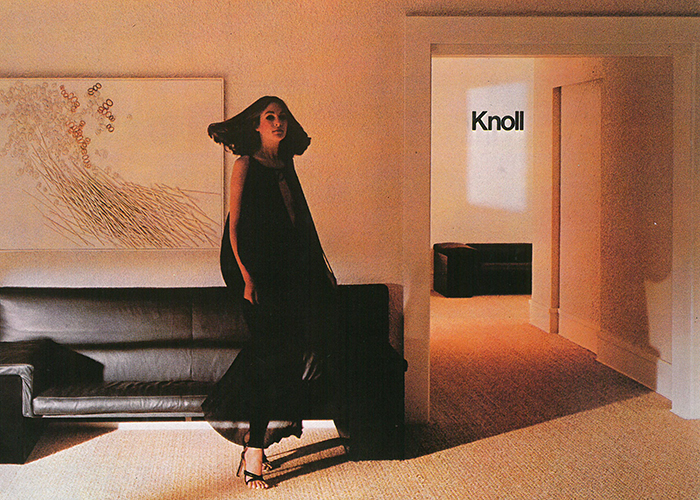
Photograph by Jacques Primois from the Knoll Archive.
Jacques Primois trained as an architectural photographer and commonly arranges furniture to appropriately partition space. Here, however, Cini Boeri's Brigadier Sofa is pushed back against the wall, creating an unusually sparse, stark environment. An element of drama is introduced by way of the model, who, cast in black, appears in a state of suspended motion. The sweep of her hair and dress contrasts with the sterility of the environment, interacting with the wheat-like abstract art that hangs behind her.
Richard Schenkirz
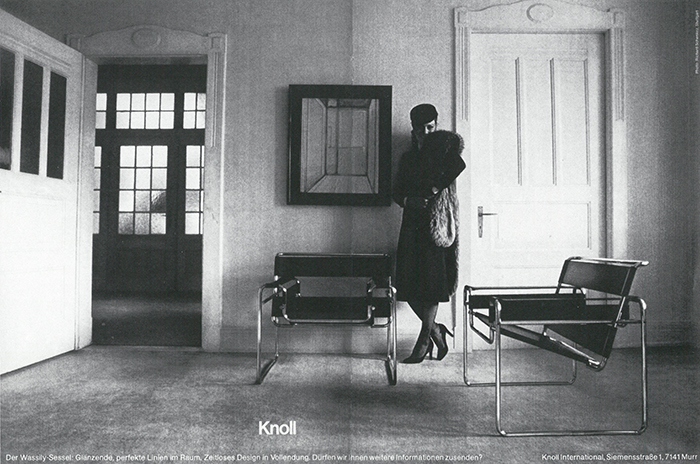
Photograph by Richard Schenkirz from the Knoll Archive.
Kaiser was known for his love of lush materials like leather and fur. Accordingly, photographer Richard Schenkirz snapped this scene in which a model looks out from behind a fur shawl that partially obscures her face. The Wassily Chairs assume positions in the foreground, while an open door invites an element of the unknown into the room.
Guy Bourdin
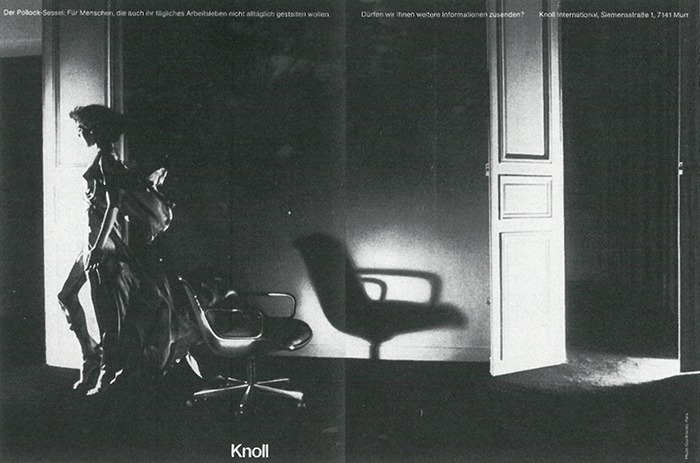
“My pictures are just accidents. I am not a director, merely the agent of chance.”
—Guy Bourdin
Photograph by Guy Bourdin from the Knoll Archive.
Guy Boudin was first hired by Kaiser's predecessor, Massimo Vignelli, who pinpointed his sense of the "metaphysical situation." A protégé of Man Ray, Bourdin is famous for cultivating a mysterious sense of danger and sex, taboo and surreal. In this scene from Kaiser's tenure, a model shown in billowing negligee flanks a backlit Pollock Executive Chair, which appears almost menacing, casting a shadow that recalls the sinister forms of German Expressionism and Film Noir. While tame by Bourdin's standards, the scene's drama represents a dramatic departure for Knoll product photography. "My pictures are just accidents," Bourdin said of his work. "I am not a director, merely the agent of chance."
Don Kennedy
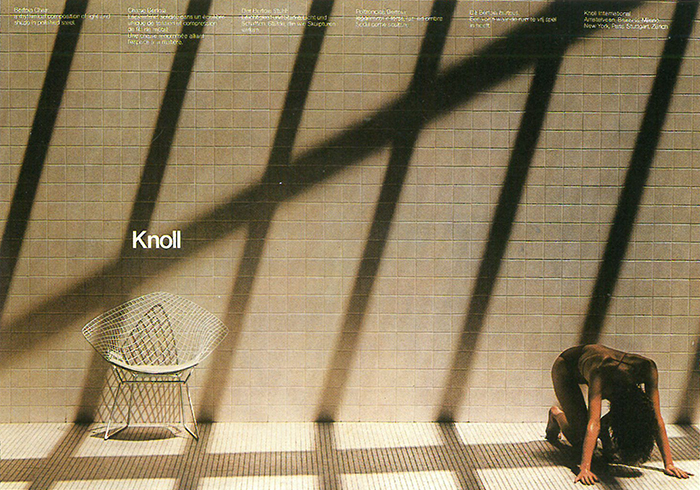
Photograph by Don Kennedy from the Knoll Archive.
Don Kennedy was often called upon for his "use of architecture to convey elegance without becoming trapped in details." Emblematic of such an approach, the series Sun and Shadow situated Harry Bertoia's Diamond Chair in a staged environment that emphasized its air-like qualities. Against the gridded tiling of the pool-like setting, the Diamond Chair appears perforated by pillars of light, giving credence to Bertoia's claim that: "If you look at those chairs, they are mainly made of air, like sculpture. Space passes right through them."
All photographs are from the Knoll Archive unless otherwise noted.
